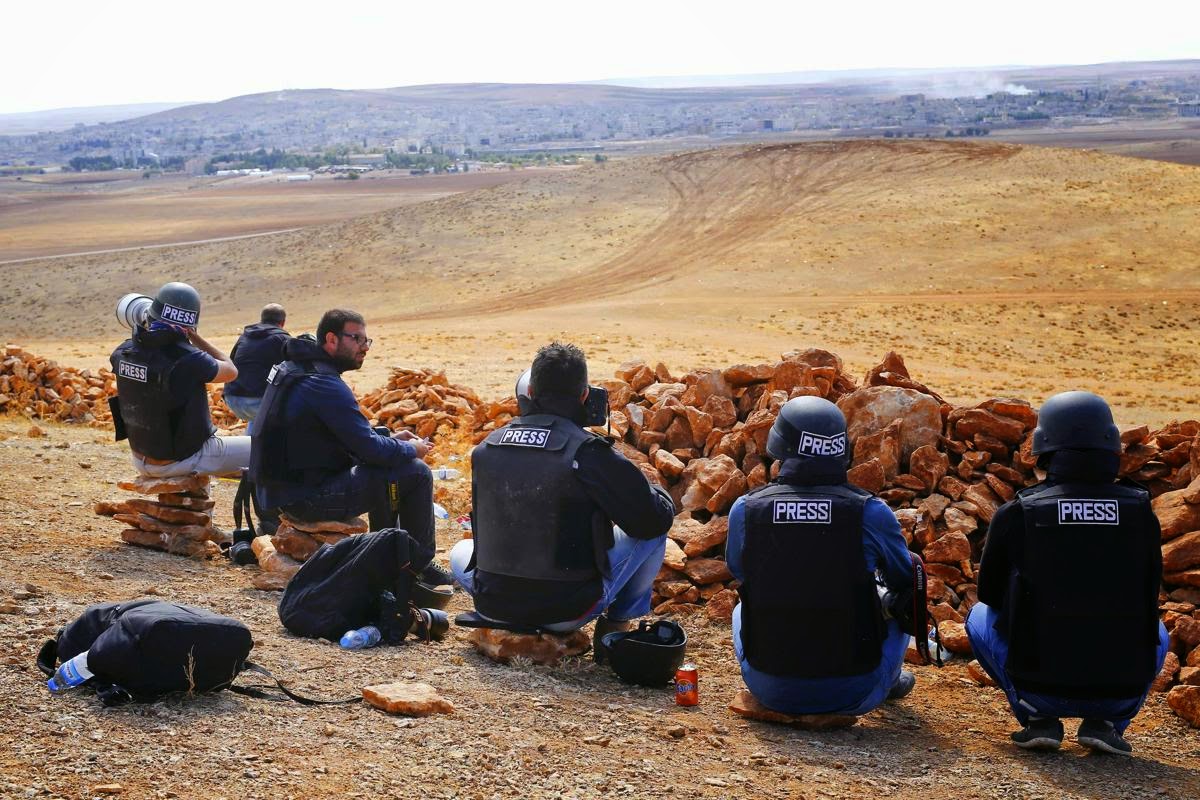Suruc
(Turkey) (AFP) - It's hardly the moment to plan a victory parade -- but the
mood has changed.
Related
Stories
IS
jihadists 'seize parts of key Syrian town' AFP
Syria
border town 'about to fall', UN envoy urges action AFP
Ramped-up
air strikes stall Islamic State advance on Syrian town Reuters
Jihadists
seize Kurdish HQ in Syria's Kobane, massacre feared AFP
Syrian
Kurdish leader urges Turkey to help fighters get weapons AFP
Sensing
the resistance of their fellow Kurds fighting jihadists for Kobane, the
refugees who fled the besieged Syrian town for Turkey are now allowing
themselves to hope.
The battle
between Kurdish fighters and Islamic State (IS) militants has been raging for a
month and around 200,000 people, mainly Kurds, from the Kobane region have fled
to Turkey.
With the
battle for Kobane easily seen and heard from over the Turkish border, the
refugees have endured an agonised wait as the IS militants advanced and even
planted their black flags on strategic points.
But amid
reports that the People's Protection Units (YPG) Kurdish fighters, with the
help of US-led coalition air strikes, are now recapturing parts of the town,
the refugees are hoping its fall may not be inevitable.
"We
have not won the victory, for sure not. But bit by bit we are advancing,"
said Kurdish refugee Faiza Abdi, a legislator from Kobane's municipal council
who fled to Turkey two weeks ago.
View
gallerySyrian Kurdish refugees that fled the Syrian town
of …
Syrian
Kurdish refugees that fled the Syrian town of Kobane, walk past tents in a
refugee camp in th …
"Above
all, in the last two days, the YPG have fought back attacks by IS in the east
of the town and have taken several districts from them," she added.
The
jihadists are far from being defeated, with activists saying they are still
occupying several districts of Kobane.
Judging by
the number of funerals of slain YPG fighters that can be witnessed on the
Turkish side of the border, the IS jihadists are still inflicting heavy losses
on the Kurdish fighters.
But many
of the Kurdish refugees think that the US-led coalition air strikes -- which
have multiplied over the last days -- have put a brake on the IS advance.
"The
coalition destroyed a lot of (IS) vehicles and pieces of artillery," Anwar
Moslem, the head of the region of Kobane who has stayed in the town amid the
fighting, told AFP by telephone.
View
galleryA photo taken on October 17, 2014 shows the Syrian …
A photo
taken on October 17, 2014 shows the Syrian town of Kobane with fog as seen from
the southeas …
The
extremists were now trying to conceal their military hardware, he said.
"They
hid their armoured vehicles, their cannons and their tanks between the houses
so they were not targeted in air strikes."
- 'If the
war is won' -
Each air
raid is welcomed with a cry of "hooray" on the hills on the Turkish
side of the border which for weeks have served as the main vantage point for
the Kurdish refugees, many of whom have got hold of binoculars to get a better
view.
"These
air strikes have saved Kobane," said Kurdish refugee Servan Ali.
"According to the information that we have, the situation has improved
considerably."
View
galleryKurdish people react as they watch smoke billowing …
Kurdish
people react as they watch smoke billowing from the Syrian town of Kobane, on
October 15, 20 …
For over a
week, the 30-year-old doctor has passed much of his time working in the
cultural centre in the Turkish border town of Suruc, which has now been
transformed into a field hospital.
With the
resistance of the YPG, Ali allows himself to dream of a Kurdish victory that
would allow him to return to his hometown.
"If
the war is won, and I hope it with all my heart, I will return instantly to
Kobane, despite the destruction.
"It's
my country, my home town, it's where I grew up," he said.
His desire
is shared by all those refugees who have crossed the border since September.
The first rains of the autumn have started to hit Suruc, adding to the
precariousness of their situation.
"We
fled the town, just with our clothes. We left our houses, leaving our dinner on
the table, once we were told that the jihadists were arriving," said
Zayide Ismail, a woman in her forties.
Crouched
outside the tent that she shares with another family, she puffed nervously on a
cigarette and said she just thinks about one thing -- returning home.
"I
can't even think about what would have happened to us, our children, our honour
without the hospitality of Turkey," she said.
"But
here we are reduced to misery while at home we had everything ready to spend
the winter," she added.



















No comments:
Post a Comment